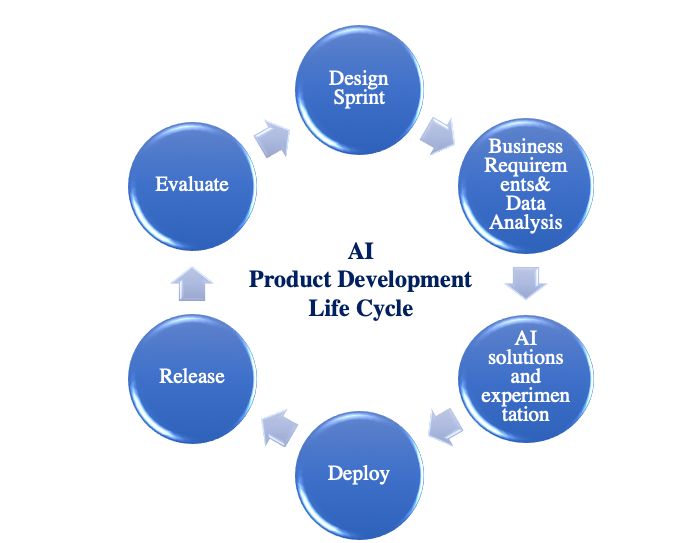Artificial intelligence is transforming product development by enabling businesses to innovate with greater speed, efficiency, and creativity. For small and medium-sized businesses, leveraging AI in product development offers a competitive edge, allowing them to bring innovative products to market faster while reducing costs and optimizing resources. Today we explore how AI is revolutionizing product development and provided actionable insights for SMBs looking to harness AI for innovation.
1. Idea Generation and Concept Development
AI can facilitate the generation of new ideas and concepts by analyzing market data, customer feedback, and emerging trends. By harnessing AI, businesses can streamline the initial stages of product development and ensure alignment with market demands.
- Trend Analysis: AI algorithms can process large datasets to identify patterns and trends, providing insights into what consumers are looking for and what competitors are offering. This allows businesses to generate ideas that resonate with current market demands.
- Customer Insights: Leveraging AI to analyze customer feedback and behavior can help businesses identify unmet needs and opportunities for innovation, ensuring that new products address genuine market demands.
2. Design and Prototyping
AI enhances the design and prototyping stages by automating complex processes and providing data-driven insights. This allows businesses to optimize designs for performance, cost, and manufacturability.
- Automated Design Tools: AI-driven design software can automate repetitive tasks, such as creating design variations and testing different configurations, significantly speeding up the design process.
- Virtual Prototyping: Enables the creation of virtual prototypes that can be tested and refined before producing physical versions, reducing the time and cost associated with traditional prototyping.
- Generative Design: Generate multiple design options based on specified parameters and constraints, allowing engineers to explore a wide range of solutions and identify the most effective designs.
3. Predictive Analytics in Product Testing
AI-driven predictive analytics can enhance product testing by simulating and evaluating product performance under various conditions. This allows businesses to optimize products before they reach the market.
- Failure Prediction: Predict potential failure points in a product’s design, enabling businesses to make necessary adjustments and improve reliability.
- Performance Optimization: Analyzing test data, software can provide insights into how a product will perform in different scenarios, allowing businesses to make informed design improvements.
- Accelerated Testing: AI can automate testing processes, allowing businesses to conduct a wide range of tests quickly and efficiently, reducing time-to-market.
4. Supply Chain Optimization
AI can optimize supply chain management by improving logistics, inventory, and procurement processes, ensuring that materials and components are available when needed.
- Demand Forecasting: Accurately forecast demand, enabling businesses to plan production schedules and inventory levels effectively, reducing the risk of stockouts or overproduction.
- Inventory Management: Optimize inventory levels by predicting demand patterns, helping businesses maintain optimal stock levels and reduce carrying costs.
- Supplier Evaluation: Assess supplier performance and identify opportunities for cost savings and efficiency improvements, ensuring a reliable supply chain
6. Post-Launch Analysis and Improvement
- Customer Feedback Analysis: Analyze customer feedback and reviews to identify areas for improvement, allowing businesses to make data-driven enhancements.
- Usage Pattern Analysis: Track how customers use products, providing insights into which features drive satisfaction and identifying opportunities for improvement.
- Iterative Improvement: Inform iterative product development processes, ensuring that products remain competitive and relevant in the market.
Conclusion
By leveraging AI technologies, SMBs can optimize design, testing, and supply chain management, bringing innovative products to market more efficiently. Embrace the power of AI in product development to drive growth and stay ahead in an increasingly competitive market.


